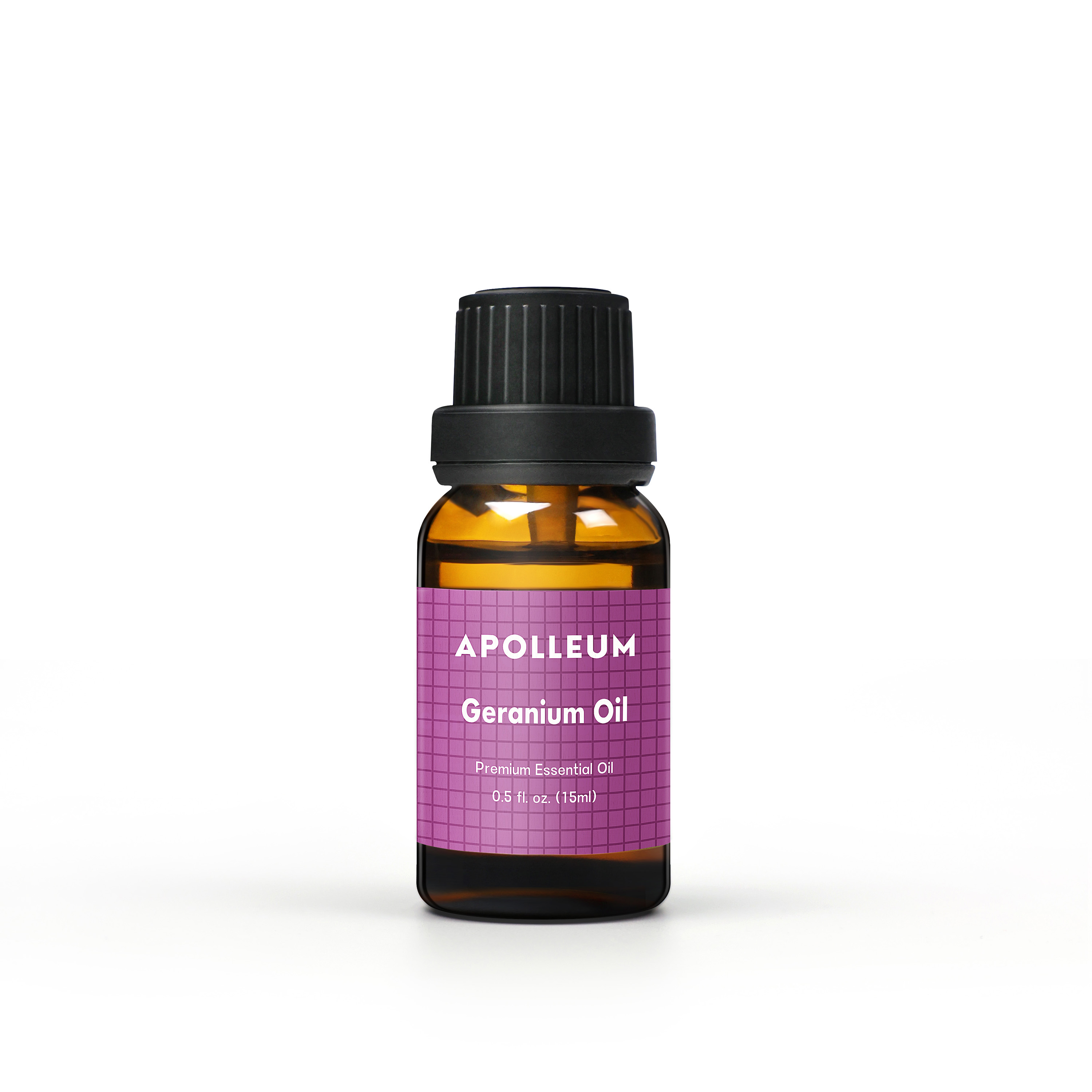

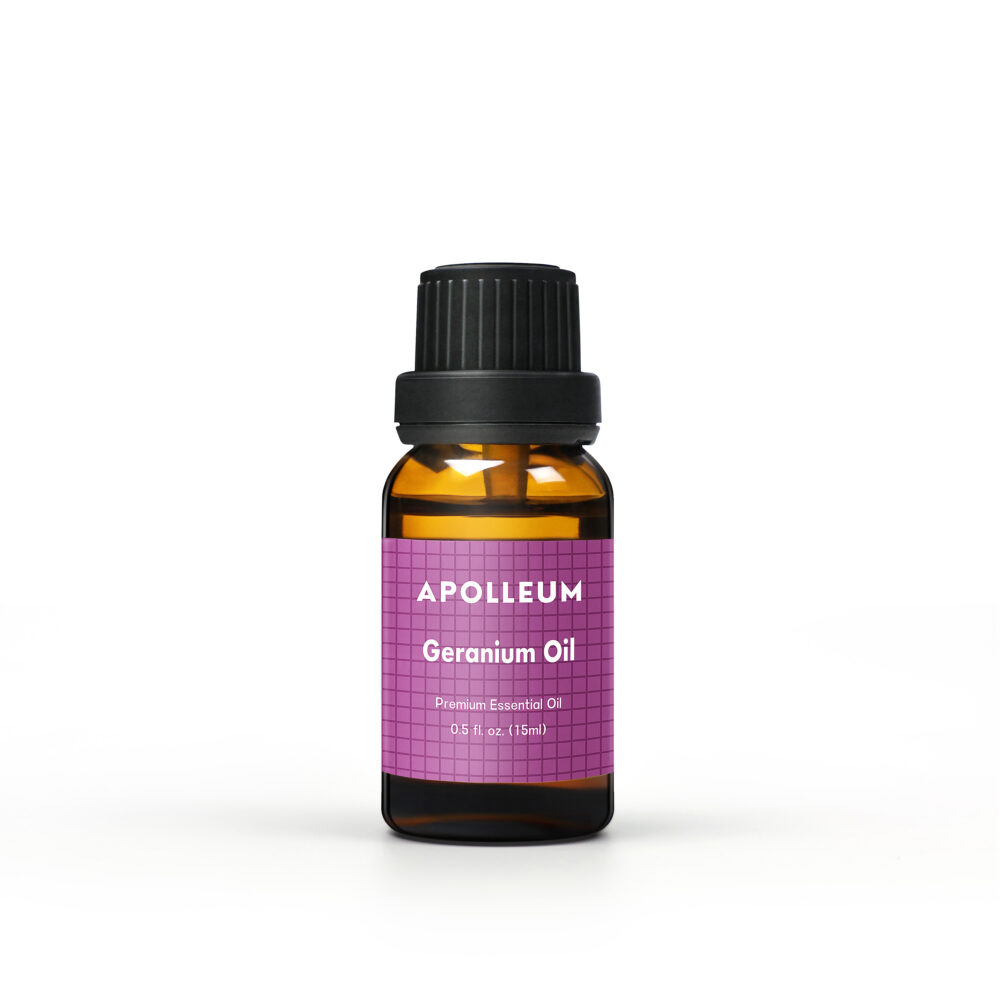
Geranium Oil
$19.88
100% PURE GERANIUM ESSENTIAL OIL
Discover the floral elegance of Apolleum’s geranium oil. Meticulously sourced, our geranium oil exudes a harmonious blend of sweet and rosy notes, creating a captivating ambiance. Elevate your senses and immerse yourself in the delicate essence of geranium. Transform your surroundings with Apolleum’s premium geranium oil. Embrace sophistication, shop now!
Size: 0.5 fl oz
Free shipping on orders over $50!
- No-Risk Money Back Guarantee!
- No Hassle Refunds
- Secure Payments
Description
- Manufacturing Method: distilled
- Part of Plant: Leaves/Stems
- Main Chemotypes: Citronellol, Geraniol, Citronellyl formiate, Geranyl formiate
- Smells Like: bold, thick, sweet and floral
Introduction to Geranium Oil
Geranium oil, derived from the leaves and stems of the Pelargonium graveolens plant, is a versatile essential oil cherished for its myriad of benefits. With a rich history dating back to ancient Egypt, where it was revered for its skincare and beauty properties, geranium oil has stood the test of time as a beloved botanical extract.
In contemporary times, geranium oil continues to captivate enthusiasts with its enchanting aroma and therapeutic qualities. From aromatherapy to skincare and beyond, this natural elixir offers a holistic approach to well-being.
Origins and Extraction Process
Natural Habitat
Geranium oil originates from the Pelargonium graveolens plant, which is native to South Africa. This resilient plant thrives in warm climates and is often found in regions with well-drained soil and ample sunlight. In its natural habitat, the Pelargonium graveolens plant can be spotted in gardens, fields, and rocky slopes, where it graces the landscape with its vibrant green foliage and delicate pink flowers.
Extraction Methods
The process of extracting geranium oil is a meticulous endeavor that requires expertise and precision. The most common method used is steam distillation, which involves gently heating the plant material to release its aromatic compounds.
During steam distillation, the leaves and stems of the Pelargonium graveolens plant are placed in a distillation apparatus, where they are exposed to steam. The steam helps to break down the plant’s cellular structure, releasing the essential oil trapped within. As the steam rises, it carries the aromatic molecules of the geranium oil with it.
The steam and oil vapor then pass through a condenser, where they are cooled and condensed back into a liquid state. The resulting mixture is collected and separated, with the lighter essential oil floating on top of the water. This oil-rich layer is then carefully extracted and bottled, ready to be used in a variety of applications.
In addition to steam distillation, geranium oil can also be extracted using other methods such as solvent extraction and enfleurage. However, steam distillation remains the most popular and widely used technique due to its efficiency and ability to preserve the integrity of the oil.
Chemical Composition and Properties
Key Components
Geranium oil boasts a complex chemical composition, with a diverse array of compounds that contribute to its unique aroma and therapeutic properties. Some of the key components found in geranium oil include:
- Citronellol: This compound gives geranium oil its characteristic floral scent and is also known for its insect-repelling properties.
- Geraniol: Another prominent compound, geraniol adds to the floral aroma of geranium oil and is believed to have antimicrobial and anti-inflammatory properties.
- Linalool: Linalool contributes to the overall scent profile of geranium oil and is prized for its calming and sedative effects.
- Citronellyl formate: This compound adds depth to the aroma of geranium oil and may also have insect-repelling properties.
These and other compounds work synergistically to create the complex fragrance and therapeutic effects of geranium oil.
Aroma and Color
Geranium oil is renowned for its delightful aroma, which is often described as floral, sweet, and slightly fruity. The scent is reminiscent of roses, making geranium oil a popular choice for perfumery and aromatherapy alike.
In terms of color, geranium oil typically ranges from pale green to amber, depending on factors such as the variety of the plant and the extraction process used. The oil may appear slightly cloudy due to the presence of natural waxes and other plant materials.
The combination of its enchanting aroma and warm color makes geranium oil a sought-after ingredient in skincare, hair care, and aromatherapy products. Join us as we continue to explore the diverse uses and benefits of this versatile essential oil.
Health Benefits of Geranium Oil
Skincare Benefits
Geranium oil offers a plethora of benefits for the skin, making it a popular choice in natural skincare products. Some of the key skincare benefits of geranium oil include:
- Balancing Sebum Production: Geranium oil helps to regulate sebum production, making it beneficial for both oily and dry skin types. By maintaining the skin’s natural moisture balance, it can help prevent issues such as acne and dryness.
- Toning and Tightening: The astringent properties of geranium oil make it effective at toning and tightening the skin. Regular use can help minimize the appearance of pores and promote a smoother, more refined complexion.
- Anti-inflammatory Action: Geranium oil contains anti-inflammatory compounds that can help soothe irritated skin and reduce redness and inflammation. It is particularly beneficial for those with sensitive or reactive skin.
- Antioxidant Protection: Rich in antioxidants, geranium oil helps protect the skin from environmental damage caused by free radicals. This can help prevent premature aging and keep the skin looking youthful and radiant.
Emotional Well-being
In addition to its skincare benefits, geranium oil is prized for its positive effects on emotional well-being. Its uplifting aroma has a balancing and harmonizing effect on the mind and emotions, making it a valuable tool for promoting mental wellness. Some of the ways geranium oil can support emotional well-being include:
- Stress Relief: The calming scent of geranium oil can help reduce feelings of stress and anxiety, promoting a sense of calm and relaxation.
- Mood Enhancement: Geranium oil has mood-enhancing properties that can uplift the spirits and promote a sense of positivity and well-being. Diffusing the oil in the home or workplace can create a pleasant and inviting atmosphere.
- Emotional Balance: Geranium oil is known for its ability to balance and stabilize emotions, making it useful for those experiencing mood swings or emotional fluctuations. Its gentle yet effective aroma can help restore emotional equilibrium and promote inner peace.
Whether used topically in skincare products or diffused aromatically, geranium oil offers a holistic approach to health and wellness, benefiting both the body and the mind. Join us as we delve deeper into the multifaceted benefits of this remarkable essential oil.
Uses in Aromatherapy
Stress Relief
Geranium oil is renowned for its ability to promote relaxation and reduce stress, making it a popular choice in aromatherapy. When diffused in the air or added to a warm bath, the soothing aroma of geranium oil can help calm the mind and ease tension in the body.
Enhancing Mood
In addition to its stress-relieving properties, geranium oil is prized for its mood-enhancing effects. The uplifting scent of geranium oil can help lift the spirits and promote a sense of positivity and well-being. Whether used alone or blended with other essential oils, geranium oil is a valuable tool for creating a harmonious and uplifting atmosphere in any space.
Application in Cosmetics
In the realm of cosmetics, the application is paramount. Whether it’s about achieving that flawless finish or creating a radiant glow, proper application can make all the difference. In this comprehensive guide, we delve into the intricacies of application in cosmetics, covering popular products and DIY recipes that elevate your beauty routine to new heights.
Popular Products
Foundation: Building a Flawless Base
Foundation serves as the canvas upon which the rest of your makeup masterpiece is built. From liquid to powder, finding the right formula for your skin type and tone is crucial. Choosing the right shade is the first step towards achieving a seamless blend with your natural complexion.
When it comes to application, technique matters. Whether using a brush, sponge, or fingertips, blending is key. Start with a small amount and build coverage gradually for a natural-looking finish. Remember to blend along the jawline and down the neck to avoid any harsh lines.
Lipstick: Making a Statement
Lipstick adds a pop of color and personality to any look. From bold reds to subtle nudes, the options are endless. Prepping the lips is essential for a smooth application. Exfoliate to remove any dead skin, then moisturize to ensure a hydrated canvas.
For precise application, use a lip brush to outline the lips before filling in with color. Blot with a tissue and reapply for long-lasting wear. Don’t forget to check your teeth for any smudges!
Eyeshadow: Enhancing Your Eyes
Eyeshadow is a versatile tool for enhancing the eyes and expressing your creativity. Whether opting for a neutral daytime look or a smoky eye for evening, choosing the right colors and textures is key.
For a seamless blend, start with a transition shade in the crease and build intensity with deeper shades on the lid. Patting on shimmer shades with your finger can intensify the color payoff, while using a damp brush creates a foil-like effect.
DIY Recipes
Nourishing Face Mask
Ingredients:
- 1 ripe avocado
- 1 tablespoon honey
- 1 tablespoon plain yogurt
- 1 teaspoon olive oil
Directions:
- Mash the avocado in a bowl until smooth.
- Add honey, yogurt, and olive oil, mixing until well combined.
- Apply to clean, dry skin and leave on for 15-20 minutes.
- Rinse off with warm water and pat dry.
This hydrating mask is packed with nourishing ingredients that leave the skin feeling soft and rejuvenated.
Refreshing Hair Treatment
Ingredients:
- 1 ripe banana
- 1 tablespoon coconut oil
- 1 tablespoon honey
- 1 teaspoon apple cider vinegar
Directions:
- Mash the banana in a bowl until smooth.
- Add coconut oil, honey, and apple cider vinegar, mixing until well combined.
- Apply to damp hair, focusing on the ends.
- Leave on for 30 minutes, then rinse thoroughly with shampoo and conditioner.
This DIY hair treatment restores moisture and shine to dull, damaged hair, leaving it feeling silky smooth.
Geranium Oil in Traditional Medicine
Geranium oil, derived from the fragrant flowers of the geranium plant, has a long history of use in traditional medicine. From ancient civilizations to modern times, this versatile oil has been prized for its various therapeutic properties. In this comprehensive guide, we explore the historical use and modern applications of geranium oil in traditional medicine.
Historical Use
Dating back centuries, geranium oil was revered by ancient civilizations for its medicinal benefits. The ancient Egyptians, known for their advanced knowledge of herbal medicine, used geranium oil for its healing properties and as a key ingredient in perfumes and skincare preparations.
In traditional Chinese medicine, geranium oil was valued for its ability to balance emotions and promote overall well-being. It was often used in aromatherapy to alleviate stress, anxiety, and depression.
Modern Applications
In modern times, geranium oil continues to be prized for its numerous health benefits and is widely used in aromatherapy, skincare, and alternative medicine practices.
Aromatherapy
Geranium oil is renowned for its uplifting and balancing aroma, making it a popular choice in aromatherapy. When diffused, its floral scent can help reduce stress and promote relaxation. It is also believed to have mood-enhancing properties, making it beneficial for those dealing with anxiety or mood swings.
Skincare
Geranium oil is a common ingredient in skincare products due to its antibacterial, anti-inflammatory, and astringent properties. It is often used to treat acne, soothe irritation, and promote healthy skin. When diluted and applied topically, it can help balance oil production and improve the overall appearance of the skin.
Alternative Medicine
In alternative medicine practices such as aromatherapy massage and reflexology, geranium oil is used to relieve pain and reduce inflammation. Its soothing properties make it beneficial for conditions such as arthritis, muscle aches, and menstrual cramps. When applied topically, it can also help speed up wound healing and reduce the appearance of scars.
Safety Precautions and Side Effects
While geranium oil offers numerous health benefits, it is essential to use it safely to avoid adverse reactions. In this section, we discuss important safety precautions and potential side effects associated with the use of geranium oil.
Dilution Guidelines
Geranium oil is highly concentrated and should always be diluted before topical use to prevent skin irritation or sensitization. A general rule of thumb is to dilute geranium oil in a carrier oil such as jojoba, coconut, or almond oil at a maximum dilution of 2-3%.
To create a diluted blend, mix approximately 12 drops of geranium oil with 1 ounce (30 ml) of carrier oil. Always perform a patch test on a small area of skin before applying the diluted oil to a larger area to check for any adverse reactions.
Potential Allergic Reactions
While geranium oil is generally considered safe for most people when used topically and aromatically, some individuals may experience allergic reactions or sensitivities. It is important to be aware of the following potential side effects:
Skin Irritation: Undiluted geranium oil can cause skin irritation, redness, or burning sensations, especially for those with sensitive skin. Always dilute geranium oil before applying it to the skin, and discontinue use if irritation occurs.
Allergic Contact Dermatitis: Some individuals may develop allergic contact dermatitis, characterized by red, itchy, or inflamed skin, after repeated exposure to geranium oil. If you experience any signs of allergic reaction, such as rash or hives, stop using the oil immediately and consult a healthcare professional.
Photosensitivity: Geranium oil may increase the skin’s sensitivity to sunlight, leading to sunburn or skin discoloration. Avoid direct sunlight or UV exposure for up to 12 hours after applying geranium oil topically to reduce the risk of photosensitivity reactions.
How to Choose Quality Geranium Oil
Selecting high-quality geranium oil is crucial to ensure safety and efficacy in its use. With numerous products on the market, it’s essential to know what factors to consider and red flags to watch for when choosing geranium oil.
Factors to Consider
Source of Origin
Look for geranium oil sourced from reputable suppliers who prioritize quality and sustainability. Ideally, the oil should be sourced from regions known for producing high-quality geranium plants, such as Egypt, South Africa, or China.
Extraction Method
The extraction method used can impact the quality and potency of geranium oil. Opt for oils that are steam distilled from fresh geranium flowers and leaves, as this method preserves the oil’s beneficial properties.
Purity and Authenticity
Choose geranium oil that is 100% pure and undiluted, with no added fillers or synthetic fragrances. Check for certifications such as USDA Organic or ECOCERT, which ensure the oil has been rigorously tested for purity and authenticity.
Scent and Color
High-quality geranium oil should have a sweet, floral aroma with subtle hints of citrus and mint. The color of the oil may vary depending on factors such as the plant’s growing conditions and the extraction process, but it should generally be pale yellow to greenish-yellow in color.
Red Flags to Watch For
Synthetic Fragrances
Avoid geranium oil products that contain synthetic fragrances or additives, as these can diminish the oil’s therapeutic properties and may cause skin irritation or sensitization.
Lack of Transparency
Choose brands that are transparent about their sourcing, production, and testing processes. Avoid products that do not provide detailed information about the origin of the oil, extraction methods, and quality assurance measures.
Cheap Prices
Be cautious of overly cheap geranium oil products, as they may be of inferior quality or diluted with fillers. Quality geranium oil requires a significant amount of plant material and careful extraction, so prices that seem too good to be true may indicate a lack of quality.
Discoloration or Rancidity
Inspect the oil for any signs of discoloration or rancidity, which may indicate oxidation or improper storage. Fresh, high-quality geranium oil should have a clean, vibrant aroma and color.
Sustainability and Ethical Sourcing
As consumers become increasingly conscious of the environmental and social impact of their purchasing decisions, the importance of sustainability and ethical sourcing in the production of geranium oil cannot be overstated. In this section, we explore the environmental impact of geranium oil production and the importance of fair trade practices in ensuring ethical sourcing.
Environmental Impact
Geranium oil production, like many agricultural practices, can have both positive and negative environmental consequences. While geranium plants are known for their resilience and ability to thrive in various climates, intensive farming practices and habitat destruction can lead to soil degradation, water pollution, and loss of biodiversity.
To mitigate the environmental impact of geranium oil production, it is crucial for producers to implement sustainable farming practices such as crop rotation, organic cultivation methods, and water conservation techniques. By minimizing chemical inputs and promoting biodiversity on farms, producers can protect ecosystems and support long-term environmental sustainability.
Fair Trade Practices
In addition to environmental considerations, ethical sourcing involves ensuring fair trade practices that prioritize the well-being of workers and communities involved in geranium oil production. Fair trade certification programs help guarantee that farmers and laborers receive fair wages, safe working conditions, and access to education and healthcare.
By supporting fair trade practices, consumers can contribute to poverty alleviation and community development in geranium-producing regions. Fair trade premiums are often reinvested in local projects such as schools, healthcare facilities, and infrastructure improvements, benefiting both producers and their communities.
Geranium Oil vs. Other Essential Oils
When it comes to essential oils, each variety offers unique aromas and therapeutic properties. In this section, we compare geranium oil with two popular essential oils: lavender oil and rose oil, highlighting their differences and benefits.
Contrasts with Lavender Oil
Aroma:
- Geranium Oil: Geranium oil has a sweet, floral scent with subtle hints of rose and citrus.
- Lavender Oil: Lavender oil has a fresh, herbaceous aroma with calming and soothing properties.
Therapeutic Properties:
- Geranium Oil: Geranium oil is known for its balancing and uplifting properties, making it beneficial for emotional well-being and skincare.
- Lavender Oil: Lavender oil is prized for its calming and relaxing effects, making it ideal for promoting restful sleep and reducing stress and anxiety.
Skin Benefits:
- Geranium Oil: Geranium oil is effective for balancing oil production, reducing acne, and promoting healthy, radiant skin.
- Lavender Oil: Lavender oil is renowned for its anti-inflammatory and antibacterial properties, making it suitable for treating minor burns, cuts, and skin irritations.
Benefits Compared to Rose Oil
Aroma:
- Geranium Oil: Geranium oil has a similar floral aroma to rose oil but is generally less expensive and more accessible.
- Rose Oil: Rose oil has a rich, luxurious floral scent with a higher price tag due to the labor-intensive extraction process.
Therapeutic Properties:
- Geranium Oil: Geranium oil offers similar benefits to rose oil, including mood enhancement, stress reduction, and skin rejuvenation.
- Rose Oil: Rose oil is prized for its aphrodisiac properties, skin-rejuvenating effects, and ability to promote feelings of love and well-being.
Cost-Effectiveness:
- Geranium Oil: Geranium oil is a more cost-effective alternative to rose oil, providing similar therapeutic benefits at a fraction of the cost.
- Rose Oil: Rose oil is considered a luxury essential oil, often reserved for special occasions or high-end skincare formulations due to its expense.
Incorporating Geranium Oil into Daily Routine
Geranium oil is a versatile essential oil with a wide range of benefits for both physical and emotional well-being. In this section, we explore tips for incorporating geranium oil into your daily routine and how to blend it with other oils for enhanced effects.
Tips for Usage
Aromatherapy:
- Add a few drops of geranium oil to a diffuser to create a calming and uplifting atmosphere in your home or workspace.
- Inhale directly from the bottle or add a drop to your palms, rub together, and cup over your nose for a quick mood boost.
Skincare:
- Mix a few drops of geranium oil with a carrier oil such as jojoba or coconut oil for a nourishing facial massage oil.
- Add a drop of geranium oil to your daily moisturizer or body lotion for added hydration and a subtle floral fragrance.
Haircare:
- Mix a few drops of geranium oil with your favorite shampoo or conditioner to promote healthy hair and scalp.
- Create a DIY hair mask by combining geranium oil with coconut oil and honey for a deeply nourishing treatment.
Blending with Other Oils
Relaxing Blend:
- Mix equal parts of geranium, lavender, and bergamot oil for a calming and stress-relieving blend. Use in a diffuser or dilute with a carrier oil for a soothing massage.
Skin Rejuvenation:
- Combine geranium oil with frankincense and rosehip seed oil for a potent anti-aging serum. Apply to clean skin before moisturizing to promote a youthful complexion.
Energizing Blend:
- Blend geranium oil with citrus oils such as grapefruit and lemon for an invigorating and uplifting aroma. Diffuse in the morning to start your day on a positive note.
Precautions:
- Always perform a patch test before using geranium oil topically, especially if you have sensitive skin.
- Avoid using geranium oil internally unless under the guidance of a qualified aromatherapist or healthcare professional.
Incorporating geranium oil into your daily routine can help promote relaxation, balance, and overall well-being. Whether used in aromatherapy, skincare, or haircare, this versatile oil offers a natural and effective way to enhance your daily self-care rituals.
Myths and Misconceptions
Geranium oil, like many essential oils, is surrounded by myths and misconceptions. In this section, we debunk common myths and clarify misconceptions about geranium oil.
Common Myths Debunked
Myth: Geranium oil is only used for its fragrance.
- Debunked: While geranium oil does have a pleasant floral aroma, it also offers numerous therapeutic properties, including skin-balancing, mood-enhancing, and stress-reducing benefits.
Myth: Geranium oil is not safe for topical use.
- Debunked: When used properly and diluted with a carrier oil, geranium oil is generally safe for topical application. However, it’s essential to perform a patch test and adhere to dilution guidelines to avoid skin irritation or sensitization.
Myth: Geranium oil is only beneficial for women.
- Debunked: While geranium oil is commonly associated with feminine scents and skincare products, it offers benefits for both men and women. Its balancing and uplifting properties make it suitable for everyone.
Clarifying Misconceptions
Misconception: All geranium oils are the same.
- Clarified: There are several species of geranium plants, each producing oil with unique aromas and therapeutic properties. It’s essential to choose high-quality geranium oil derived from reputable sources for optimal results.
Misconception: Geranium oil is a cure-all for skin conditions.
- Clarified: While geranium oil offers benefits for the skin, including balancing oil production and promoting a healthy complexion, it is not a miracle cure for all skin conditions. It should be used as part of a comprehensive skincare routine alongside other skincare products and practices.
Misconception: Geranium oil can be ingested safely.
- Clarified: Ingesting essential oils, including geranium oil, can be dangerous and is not recommended without the supervision of a qualified healthcare professional. Essential oils are highly concentrated and can cause adverse reactions or toxicity if ingested improperly.
Geranium Oil in Popular Culture
Geranium oil has made its mark in literature, media, and various cultural traditions, showcasing its enduring popularity and significance. In this section, we explore references to geranium oil in literature and media, as well as its cultural significance.
References in Literature and Media
Literature:
- In “Little Women” by Louisa May Alcott, the character Amy March uses geranium oil as a perfume, highlighting its association with femininity and elegance.
- Geranium oil is mentioned in “Pride and Prejudice” by Jane Austen, where it is described as a favorite scent of the refined and genteel characters.
Media:
- In the popular TV series “Downton Abbey,” Lady Mary Crawley is seen using geranium oil as part of her skincare routine, reflecting its historical use in high society.
- Geranium oil is frequently featured in lifestyle magazines and beauty blogs for its skincare benefits and aromatic qualities, further cementing its popularity in modern media.
Cultural Significance
Symbolism:
- Geranium oil is often associated with feelings of balance, harmony, and tranquility, making it a popular choice for aromatherapy and relaxation practices.
- In some cultures, geranium oil is believed to have protective and purifying properties, used to ward off negative energy and promote positive vibes.
Rituals and Traditions:
- In traditional Chinese medicine and Ayurveda, geranium oil is used to balance the body’s energy and promote overall well-being.
- Geranium oil is incorporated into various rituals and ceremonies, such as aromatherapy massage and meditation, to enhance spiritual connection and inner peace.
Conclusion
In conclusion, geranium oil is a versatile and beloved essential oil with a rich history, diverse uses, and enduring popularity. From its therapeutic properties to its cultural significance, geranium oil has earned its place in literature, media, and various cultural traditions. Whether used for skincare, aromatherapy, or as a symbol of balance and harmony, geranium oil continues to captivate and inspire people around the world. By understanding its benefits, debunking myths, and embracing its cultural heritage, we can fully appreciate the beauty and value of geranium oil in our daily lives.

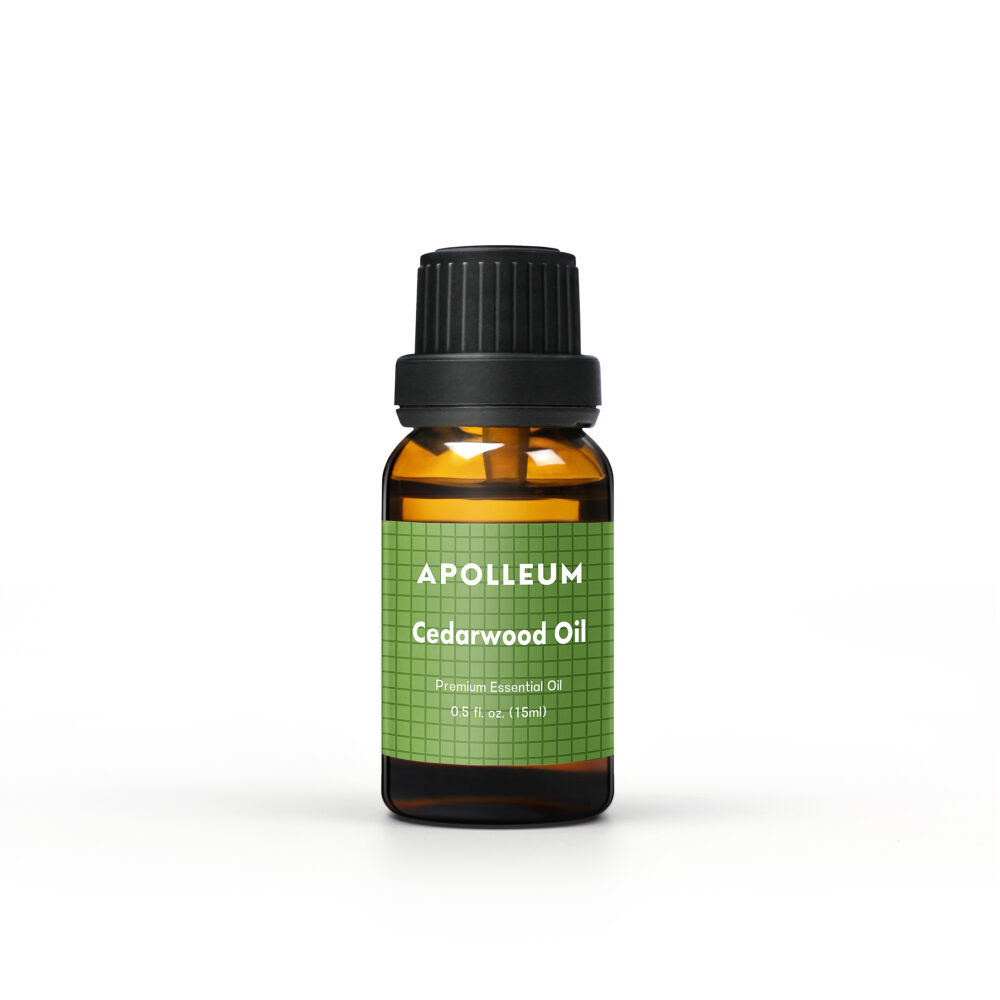
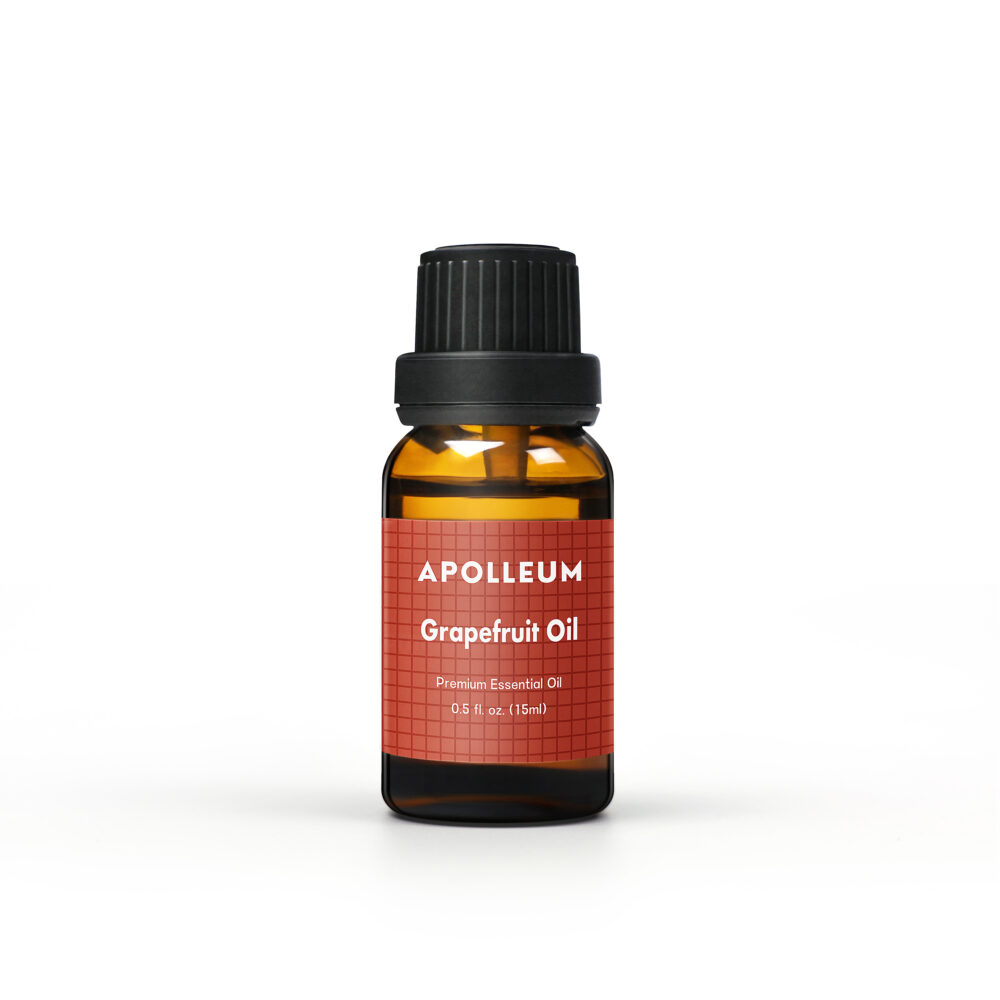
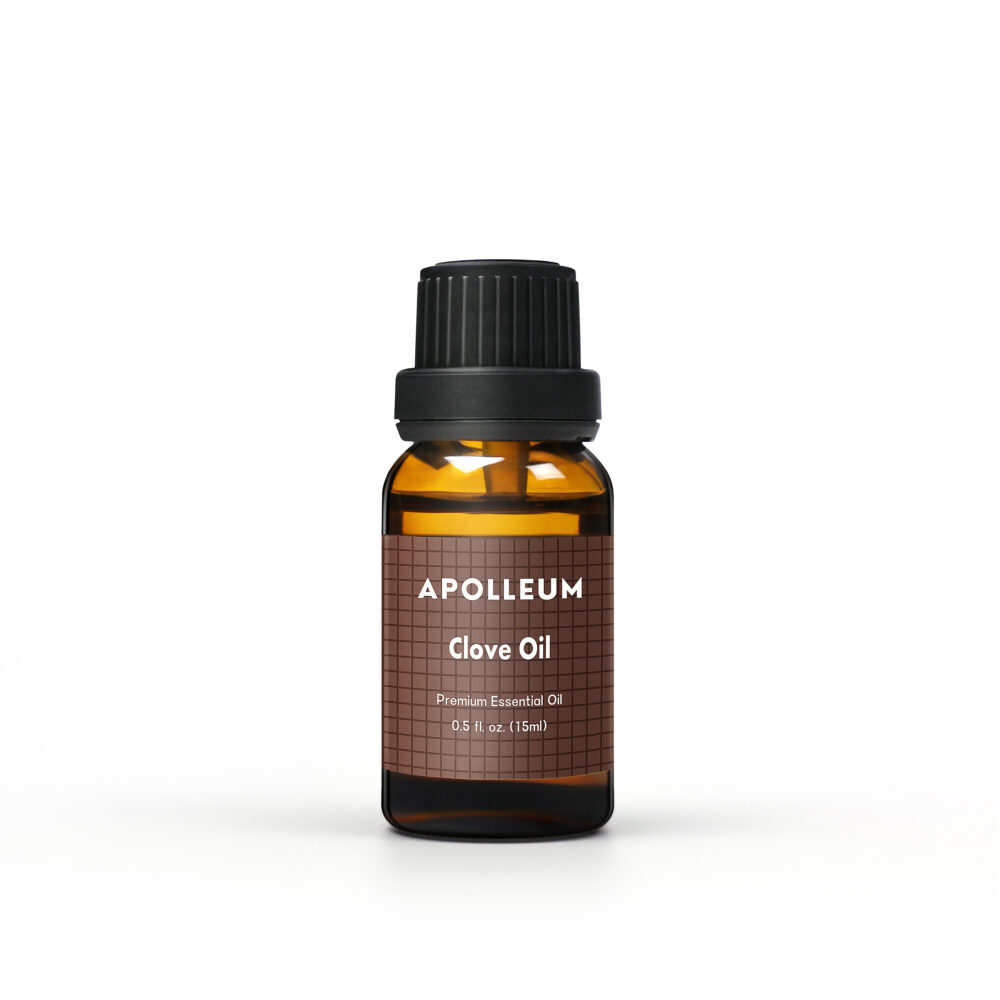
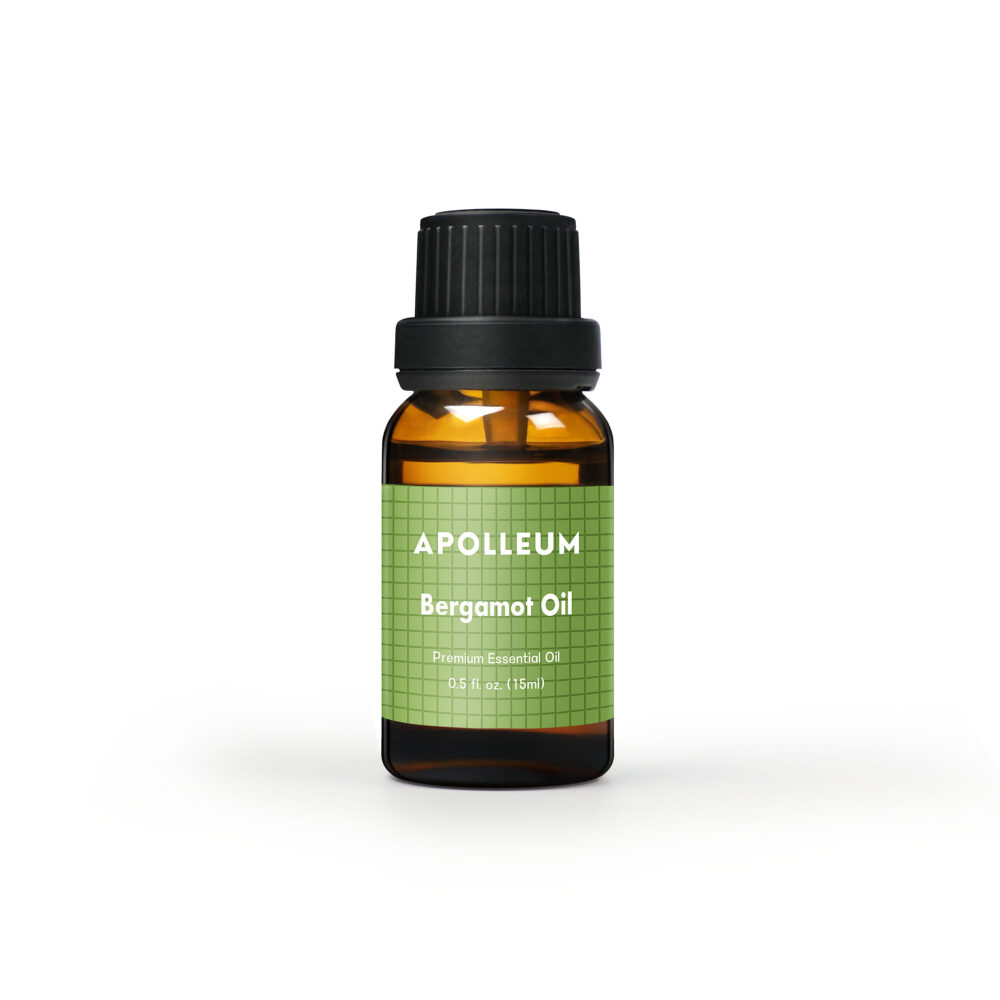
Reviews
There are no reviews yet.